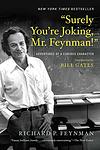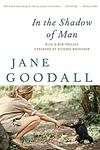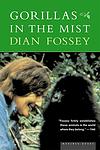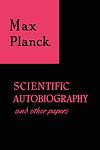The Greatest "Autobiography, Science" Books of All Time
Click to learn how this list is calculated.
This list represents a comprehensive and trusted collection of the greatest books. Developed through a specialized algorithm, it brings together 300 'best of' book lists to form a definitive guide to the world's most acclaimed books. For those interested in how these books are chosen, additional details can be found on the rankings page.
Genres
Autobiography is a literary genre that focuses on the life story of the author. It is a first-person account of the author's experiences, thoughts, and emotions, often including significant events and milestones that have shaped their life. Autobiographies can be written by anyone, from famous public figures to ordinary people, and can cover a wide range of topics, including personal growth, career achievements, struggles, and relationships. This genre provides readers with a unique insight into the author's life and perspective, making it a popular and engaging category of books.
The category of "Science" in books encompasses a wide range of topics related to the natural world, including physics, chemistry, biology, astronomy, and more. These books may explore scientific theories, discoveries, and advancements, as well as the history and philosophy of science. They may also cover practical applications of science, such as technology and medicine. Overall, the Science category offers readers a deeper understanding of the world around them and the scientific principles that govern it.
Countries
Date Range
Reading Statistics
Click the button below to see how many of these books you've read!
Download
If you're interested in downloading this list as a CSV file for use in a spreadsheet application, you can easily do so by clicking the button below. Please note that to ensure a manageable file size and faster download, the CSV will include details for only the first 500 books.
Download-
1. The Double Helix: A Personal Account of the Discovery of the Structure of DNA by James D. Watson
This book is a personal account of the race to discover the structure of DNA, told from the perspective of one of the co-discoverers. It provides an insider's view of scientific research, the collaboration and competition, the dedication, the doubt, the exhilaration of discovery, and the often fraught relationship between science and the rest of life. The book also explores the personalities, quirks, and conflicts of the scientists involved in the groundbreaking discovery.
-
2. The Worst Journey in the World by Apsley Cherry-Garrard
"The Worst Journey in the World" is a gripping account of the Terra Nova Expedition to the South Pole in 1910-1913. The book vividly describes the perilous journey undertaken by a team of explorers, their struggles with brutal weather conditions, and the tragic loss of their leader and four other members on their return from the Pole. The narrative is not only about physical survival in harsh conditions, but also about the psychological toll of such an expedition, making it a timeless testament to human endurance and spirit.
-
3. The Periodic Table by Primo Levi
"The Periodic Table" is a collection of short stories that use elements of the periodic table as metaphors to explore the author's experiences as a Jewish-Italian chemist before, during, and after World War II. Each chapter is named after a chemical element, reflecting its significant role in the story. The work provides deep insights into the human condition and the power of science, while also serving as a poignant memoir of survival during the Holocaust.
-
4. "Surely You're Joking, Mr. Feynman!": Adventures of a Curious Character by Richard P. Feynman
The book is an autobiography of a Nobel Prize-winning physicist, filled with humorous and insightful anecdotes from his life. It highlights his adventures from his early years, working on the Manhattan Project, to his teaching years at Caltech. The book showcases his unconventional thought process, his insatiable curiosity, and his passion for science, painting a vivid picture of a man who never stopped questioning and learning.
-
5. In the Shadow of Man by Jane Goodall
This book provides a fascinating and detailed account of the author's groundbreaking research on wild chimpanzees in Africa. The author offers insights into the complex social structure, behavior, and personalities of these primates, challenging the then-prevailing scientific belief that only humans were capable of having personalities and emotions. Through her studies, the author revolutionized our understanding of our closest relatives in the animal kingdom, and she also discusses the threats to their survival and the many challenges they face due to human activities.
-
6. Gorillas In The Mist by Dian Fossey
This book is a remarkable account of an eminent primatologist's thirteen-year study and close encounters with the mountain gorillas of the African rainforest. The author immerses herself in the lives of these majestic creatures, observing their complex social structure, behaviors, and interactions. Through her passionate and dedicated research, she develops a deep bond with the gorillas, gaining unprecedented acceptance by the animals and a unique insight into their world. The work also highlights the threats to the gorillas' survival, primarily from poaching and habitat destruction, and the author's relentless efforts to protect these magnificent animals and their environment.
-
7. Under A Lucky Star by Roy Chapman Andrews
"Under A Lucky Star" is the autobiography of a renowned naturalist and explorer, chronicling his thrilling adventures and groundbreaking expeditions across the globe. The narrative captures his early passion for the natural world, his rise to fame as a leader in the field of paleontology, and his most famous exploits in the Gobi Desert, where he made unprecedented dinosaur discoveries. His story is not only a testament to personal courage and determination but also a vivid account of the scientific spirit and curiosity that drove early 20th-century exploration, laying the foundations for our understanding of the prehistoric past.
-
8. A Leg To Stand On by Oliver Sacks
In this introspective memoir, a renowned neurologist recounts his personal journey of recovery after suffering a severe leg injury in a mountaineering accident. The narrative delves into the author's profound experience of losing the sense of connection with his leg, as it becomes a foreign, unresponsive object. Through his convalescence, he confronts the challenges of physical and psychological healing, exploring the intricate relationship between the body and the mind. His reflections on the nature of illness, the process of rehabilitation, and the empathy required by medical professionals offer a deep understanding of the patient's perspective and the human capacity for resilience.
-
9. Scientific Autobiography and Other Papers by Max Planck
This book is a compilation of the author's scientific autobiography and other scientific papers, providing an insightful look into his life and work. The author, a prominent physicist, discusses his contributions to quantum theory and his experiences during World War II. The book also includes his thoughts on philosophy and religion, and how they intersect with his scientific work. This collection provides an intimate look into the mind of one of the most influential scientists of the 20th century.
Reading Statistics
Click the button below to see how many of these books you've read!
Download
If you're interested in downloading this list as a CSV file for use in a spreadsheet application, you can easily do so by clicking the button below. Please note that to ensure a manageable file size and faster download, the CSV will include details for only the first 500 books.
Download







